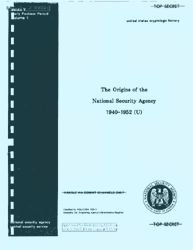The governments of the United States and the Soviet Union immediately recognized the new nation, but the neighboring Arab states of Lebanon, Syria, Jordan, Iraq, and Egypt sent their armed forces into Palestine to "restore order." War ensued, which lasted on and off until July, 1949, when a United Nations (U. N.) mediator arranged an armistice. Hundreds of thousands of Palestinians fled their homeland and became refugees in neighboring Arab states, particularly Lebanon and Jordan.
The refugees lived for many years thereafter in poverty-stricken camps. A fragile peace marred by frequent outbreaks of violence on both sides endured until 1956. During the intervening years a special relationship began to develop between the United States and Israel, while the Soviet Union increasingly supported the Arab states in their disputes with Israel. This dichotomy was part of the widening Cold War developing between the United States and the Soviet Union.
The special relationship between the United States and Israel derived in large part from the wealth and political influence of the American Jewish community. American Jews, anxious that the Jewish state in Israel should survive and prosper, made large donations to the political campaigns of candidates for the U. S. Congress. These candidates, once elected to the House of Representatives or the Senate, voted for billions of dollars in U. S. aid to Israel and brought heavy pressure on the U. S. State Department to support Israel diplomatically.
The State Department consequently adopted a very pro-Israel stance in its foreign policy, which angered the governments and peoples of the other Middle Eastern states and led to American support for the policies of Israel even in the face of world condemnation of Israeli actions. Another cause of unqualified U. S. support for Israel was the ever-widening Cold War with the Soviet Union.
The Soviet Union gave massive financial and military support to the Arab states of the Middle East, especially to Syria and Egypt. In 1956 the British, French, and Israelis attacked Egypt and took the vital Suez Canal, which links the Mediterranean Sea with the Red Sea, and thus the Indian Ocean.
The Soviets secretly informed the U. S. government that continued occupation of the area by the allies would result in war. President Dwight D. Eisenhower clandestinely forced the withdrawal of Israeli forces from the Sinai Peninsula and the Suez district.
Egyptian president Gamal Abdel Nasser then set out to forge Arab unity. For a time in the late 1950's and early 1960's he managed to forge a union between Egypt and Syria, but the union eventually collapsed due to regional rivalries. Nasser tried to pursue "Arab Socialism" in his domestic policies but ultimately failed. In the meantime, the U. S. Central Intelligence Agency (CIA) secretly aided a repressive and staunchly anticommunist regime in Iran to suppress its opponents. This aid caused severe repercussions for the United States during the 1970's.




 World History
World History









